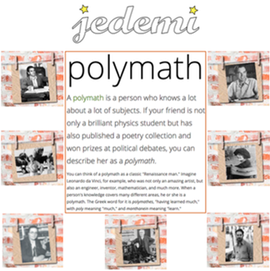
The Gang here at Jedemi has been really good at driving home the “Stay Curious My Friends” (#SCMF) point — to the point where I block time to read with avid attention (Yes, it happens in 20-minute increments — see DragonBustR for details).
So the other day before my run, I pulled out some articles I had held aside for when I had that good quality time to settle in and embrace the concepts being communicated.
What appeared in the stack was Clive Thompson’s piece on Pagan Kennedy’s ‘Inventology’ and Adam Grant’s ‘Originals’ that appeared in the Sunday Book Review section of the New York Times back in… February.
Better late than never, I supposed. Besides, looking at something I set aside in February some 7 months later may give me an insight into my thinking at that time and what, if anything, has changed.
***
Notables per Mr. Thompson’s article:
- Pagan Kennedy’s new book, “Inventology: How We Dream Up Things That Change the World,” After talking to dozens of inventors, she finds that their breakthroughs frequently involve an element of luck — though, as Louis Pasteur observed, luck favors the prepared mind.
My thinking: Sure… The “luck” described here seems to map to the word “serendipity,” which is kicked around a lot at the Jedemi cafe.
- Kennedy also argues that inventors are often polymathic connectors “who — by luck, design or some quirk of personality — are able to bring together knowledge from several fields.”
Wait… what? There’s a name for what The Gang here at Jedemi does?
Polymathic?
That got me curious as I got to thinking that in this context, math has nothing to do with the definition. So off to Google I went.
Polymath is a noun for “a person of wide-ranging knowledge or learning.”
So — a sort of Renaissance man (or woman)?
Indeed, according to Vocabulary.com:
You can think of a polymath as a classic “Renaissance man.” Imagine Leonardo da Vinci, for example, who was not only an amazing artist, but also an engineer, inventor, mathematician, and much more. When a person’s knowledge covers many different areas, he or she is a polymath.
Honestly, I had no idea that was a word for The Gang at Jedemi.
Here’s the quick run down (in order of their arrival at the Cafe):
Frankie is Frank Capra, an Academy Award-winning director whose movies were suffused with affectionate portrayals of the common man and the strengths and foibles of American democracy.
- He went to Cal Tech and studied Chemical Engineering. HIs knowledge of the science of film is what kicked down the doors to the industry for him. He spoke five languages. Plus, he became an expert in “the ultimate weapon against pomposity” — pie throwing.
Joey is Joseph Campbell, an American professor, writer, and orator best known for his innovative work in the fields of comparative mythology and comparative religion. His “Hero with a Thousand Faces” book influenced George Lucas.
- He’s multi-lingual (studied Freud and Jung in their native language), into sports (captain of Columbia’s track team, hockey – he played goalie, boxing, swimming); played many instruments (violin, banjo, guitar, mandolin, sax, piano), loved to play pranks, and even became an amateur marine biologist when he hung out on Cannery Row with our Doc (participating in a specimen gathering trip to Alaska).
- In “Power of Myth”, he told Bill Moyers:
I wanted to be a synthesis of Douglas Fairbanks and Leonardo da Vinci, that was my idea. But those were models, were roles, that came to me.
Frannie is Frances Marion, an American motion picture screenwriter whose 25-year career spanned the silent and sound eras. She is credited with writing 325 scripts of every genre. Her background is amazingly eclectic.
- She’s an artist and a former journalist (she was one of the first female war correspondents and the first Allied woman to cross the Rhine in WWI ). Extremely well-rounded Marion also painted, sculpted, spoke several languages fluently, and played concert caliber piano.
- Also notable… She and Mary Pickford were BFFs. Frannie was particularly protective when it came to Mr. Douglas Fairbanks wooing young Mary.
St X is Antoine de St. Exupery, a French aviator and the author of the children’s fable The Little Prince (1943). , a French aviator and the author of the children’s fable “The Little Prince (1943)”. He also wrote novels. Southern Mail (1929), Night Flight (1931) and Wind, Sand and Stars (1939) brought him critical and popular success.
- He could draw and was great at card tricks.
…Saint-Exupéry was as striking a personality as he was a writer. Nothing is more difficult for someone condemned to write at “second hand” than to convey a particular human being’s charm or spell, above all when exercised by someone who was literally a magician. A magician whose heavy peasant hands could execute card tricks on a level with the great Houdini’s. André Mauroix once compared his story-telling gift to that of Scheherezade. John Phillips, the former Life photo-reporter, has called him a twentieth century Pico delle Mirandola. Others have likened him to Leonardo da Vinci and the omni-curious if not omniscient men of the Renaissance.
Also,
…One of his closest friends, Dr. Georges Pélissier, wishing to write an appreciation of him after his death, could find nothing better than the pentagonic title, Les Cinq Visages de Saint-Exupéry — the five “faces” or facets of his personality being Saint-Ex the Flyer, Saint-Ex the Writer, Saint-Ex the Man, Saint-Ex the Inventor, and Saint-Ex the Magician. Even so, the spectrum could have been extended and he could just as justifiably have entitled his book, Les Sept Visages de Saint-Exupéry, throwing in Saint-Ex the Humorist and Saint-Ex the Thinker, for good measure. For Saint-Exupéry, who “read little but understood everything” (to quote Pélissier), was in the deepest sense a thinker who used card tricks, word puzzles, chess games, and comic drawings to mask his innermost preoccupations.
The above came from Curtis Cate’s “Antoine de Saint-Exupéry: His Life and Times.”
Doc is Ed Ricketts, a pioneering marine biologist and philosopher who influenced Joseph Campbell and John Steinbeck.
Although a marine biologist “Doc” Ricketts was also an eclectic thinker who did not lose touch with life. He loved good food, good drink, and women, as well as art, music, literature, philosophy and friends. He loved Bach, Mozart, and Gregorian chants and he could discuss modern art with ease. He was known for quoting the poetry of Walt Whitman at great length.
Tommie is Thomas Edison, the most prolific inventor in American history –having developed many devices that greatly influenced life around the world: the first commercial light bulb, a universal stock ticker, a mechanical vote recorder, electrical power, recorded music, motion pictures, and more.
Plus, he broadened the notion of invention to encompass what we now call innovation-invention, research, development, and commercialization-and invented the industrial research laboratory.
Pretty self-explanatory…
Dossie is is Dorothy L. Sayers, a renowned English crime writer, poet, playwright, essayist, translator and Christian humanist. She studied medieval literature at Oxford, being one of the first women to graduate from that university (1915).
Drilling down…
- She worked for several years as a copywriter for the London advertising firm Bensons (brands included Guinness, Coleman’s mustard)
- She created Lord Peter Wimsey, an English aristocrat and amateur sleuth who was the protagonist for a series of novels and short stories that were set between the First and Second World Wars.
- She also taught herself old Italian and her translation of Dante’s Divine Comedy is still in print today.
- Also, she was a keen motorbike rider, and has earned quiet respect in certain circles for the faultless descriptions of these machines in her books.
Note: You’ll find that Dossie and Frannie are the lead writers of the posts by “The Gang.”
My turn to say “That’s a Wrap!”
I’m not sure the word “Polymath” will ever roll off my tongue as easily as Jedemi — which really takes this Polymath concept to a whole new level — as an active “Polymathic influencer” fully believing in Dossie’s concept of “Idea, Energy and Power.”
Still — I’m glad I allowed myself the time to explore… to do what The Jedemi Gang is calling “the 4th R.”
- Reading
- wRiting
- Re-Creation
- Research —> That’s where the fun is!
Thanks for reading and #SCMF!
—Annie
###
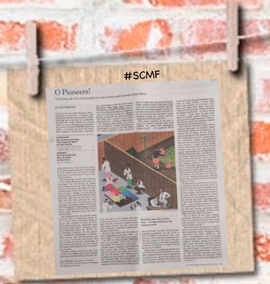
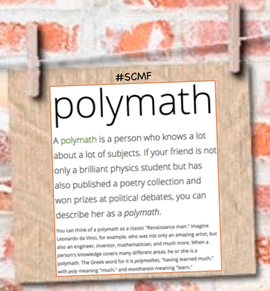
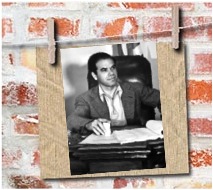
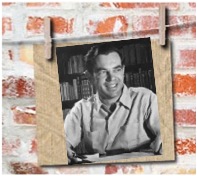
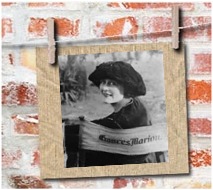

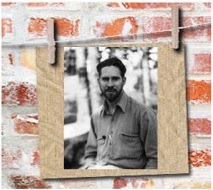
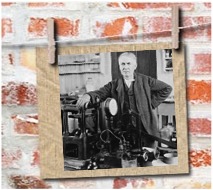
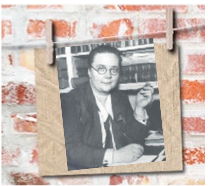


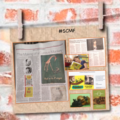
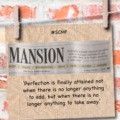


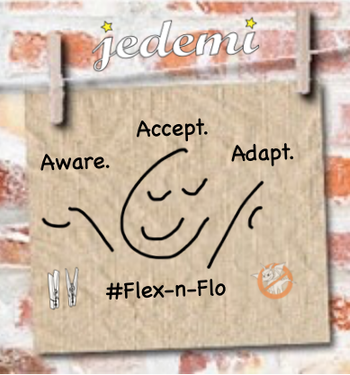
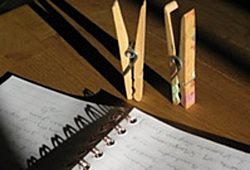
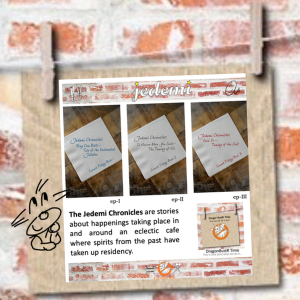
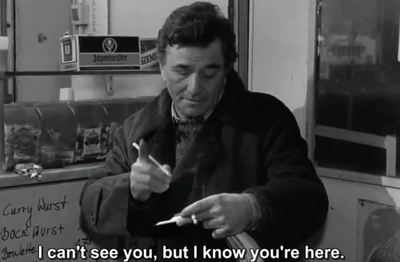


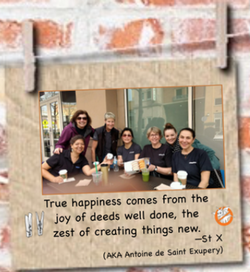






Speak Your Mind